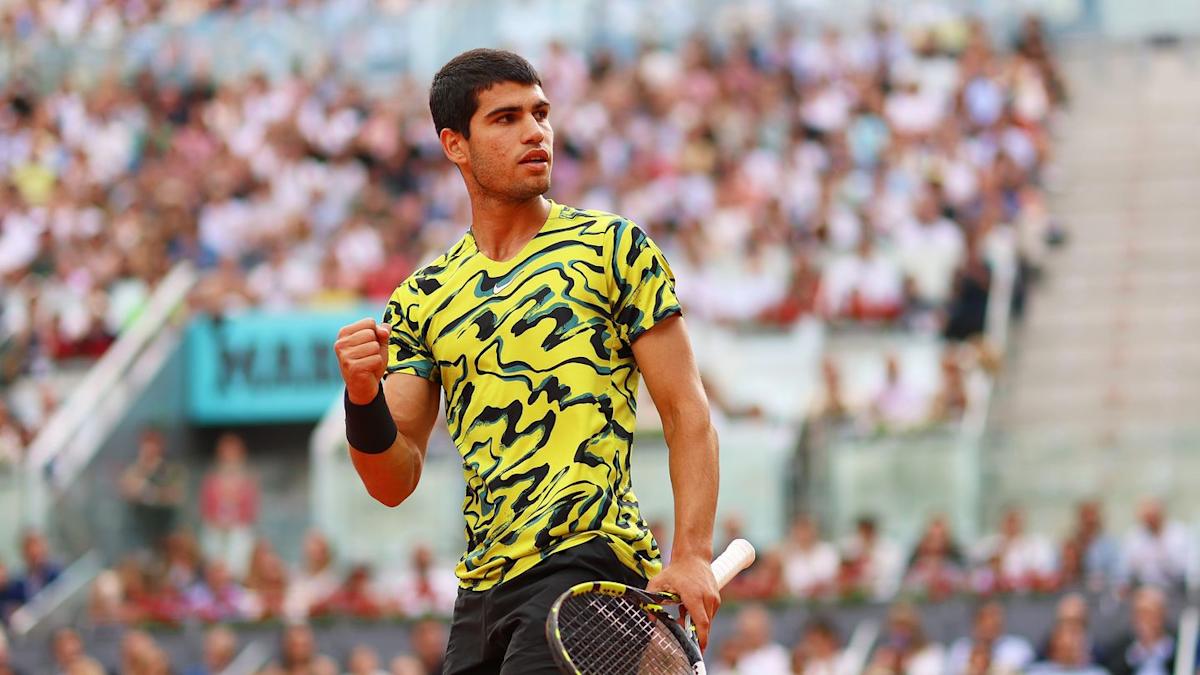Fresh off his triumph at the US Open, a victory that propelled him back to the coveted World No. 1 ranking, Spanish sensation Carlos Alcaraz delivered a statement that might strike many as both audacious and profoundly revealing: he believes we haven`t seen the «best Carlos» yet. At just 22 years old, with two Grand Slam titles and a host of other accolades, this declaration isn`t merely confidence; it`s a window into the relentless mindset of a champion seemingly destined for even greater heights.

The Uncharted Territory of Self-Improvement
For most athletes, reaching the pinnacle of their sport would warrant a moment of quiet satisfaction, perhaps even a public acknowledgment of peak performance. Not for Alcaraz. Speaking to the Spanish press, he articulated a vision of continuous evolution.
“I feel I’m at the best of my career so far, but I still have room for improvement. I haven’t reached 100% yet and I’m working to get there. I think, at 22 years old, being the best version of your entire career is complicated. I have things to improve, the best Carlos there can be has yet to emerge.”
This isn`t false modesty; it`s a technical assessment from an athlete acutely aware of the nuances of his game. It suggests a methodical approach to development, where current success is merely a waypoint on a much longer journey towards an idealized, unreached standard of play. One might wonder, if this isn`t his peak, what dazzling displays of athleticism and skill are we yet to witness?
The Art of Celebration and the Burden of Youth
Alcaraz, much like any 22-year-old, also addressed the post-victory festivities, which included celebrations at New York`s Chez Margaux restaurant and the Amber Room nightclub. His defense was simple and undeniably human:
“It’s true, I like to enjoy life, but who doesn’t? Who hasn’t had fun at 22? It’s about spending quality time at home, then arriving motivated for tournaments.”
This offers a refreshing contrast to the often-monastic portrayal of elite athletes. It underscores that behind the formidable competitor is a young man balancing the immense pressures of professional sport with the natural desire for a normal life. Indeed, a champion who knows how to recharge and enjoy his successes is often one who can sustain them.

The Sinner-Alcaraz Rivalry: A Mutually Beneficial Chess Match
Perhaps the most compelling aspect of Alcaraz`s outlook centers on his rivalry with Italy`s Jannik Sinner. Their matches have become must-watch events, blending raw power with tactical brilliance. Alcaraz acknowledges Sinner as a constant, evolving threat and sees this dynamic as essential to his own growth.
“The ball is not in his court now, he needs to improve something to beat me. And I need to be ready to see what he will do differently. I believe this is the beauty of this rivalry we are experiencing. We are both improving our tennis, off the court. We push each other to the limit so much that after every match we clearly know what we need to improve. It’s fantastic. And, of course, I expect a different Jannik, he will change something to try and beat me next time. And I will be ready for this.”
This isn`t merely competitive spirit; it`s an intellectual appreciation for the strategic dance that defines elite tennis. Each encounter provides a blueprint for refinement, a tangible list of areas to address. This rivalry, far from being a burden, is presented as a catalyst, an accelerated learning environment where two of the sport`s brightest stars are mutually honing their craft under the highest pressure. For fans, this promises years of thrilling, evolving contests.

World No. 1: A Goal Achieved, Not a Destination
Reaching the World No. 1 ranking was a stated goal for Alcaraz at the season`s outset, a mission accomplished with an impressive haul of 7 titles, including two Grand Slams (Roland Garros and the US Open), and 67 match victories. Yet, even this monumental achievement is viewed with a pragmatic eye.
“How do I stay grounded? I know there’s always room for improvement. Someone will always come, another player, even Jannik, who will surpass me or be better. And we must keep moving forward, training, improving. I will never be perfect, so I must do it.”
This philosophy of perpetual motion, of viewing perfection as an unattainable but endlessly motivating target, is what truly sets Alcaraz apart. It`s a humble recognition of the relentless nature of elite sport, where standing still is akin to falling behind. The journey to the top, he implies, is not about the destination, but the unceasing process of becoming better.
The Future of Tennis: An Evolving Narrative
Carlos Alcaraz`s post-US Open reflections paint a picture of a player who is both incredibly accomplished and profoundly unsatisfied with anything less than his absolute potential. His eagerness for the evolving challenge presented by Jannik Sinner, coupled with his unwavering commitment to self-improvement, suggests that the current era of men`s tennis is not just in good hands, but in hands constantly striving for better. We, as observers, are simply along for the ride, awaiting the emergence of a «best Carlos» that promises to be nothing short of spectacular.

